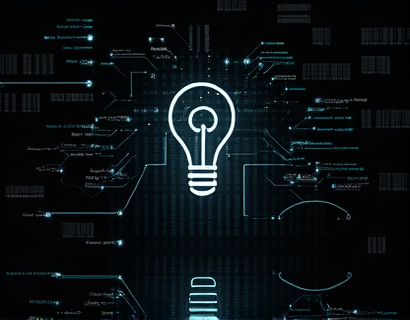Specialized Insights on the Banana Industry: A Comprehensive AI-Powered Resource
The banana industry, a cornerstone of global agribusiness, plays a vital role in the economies of many countries, particularly in tropical regions. This comprehensive resource, powered by advanced AI technology, aims to provide in-depth insights into various aspects of the banana industry, catering to a diverse audience including students, educators, parents, AI enthusiasts, and knowledge seekers. The AI-powered chat platform serves as an interactive tool, delivering accurate and verified information in an engaging and accessible manner.
Understanding the Banana Industry
The banana industry is a complex network involving cultivation, trade, and consumption. Bananas are one of the most widely consumed fruits worldwide, known for their nutritional value and versatility. The industry's significance extends beyond food production, impacting economies, employment, and environmental sustainability. This resource will delve into the key components of the banana industry, from farming practices to market dynamics, providing a holistic view for a better understanding.
Cultivation and Production
Banana cultivation is primarily concentrated in tropical and subtropical regions due to the fruit's specific climate requirements. Countries like Ecuador, Costa Rica, and the Philippines are leading producers, contributing significantly to the global supply. The production process involves several stages, starting with planting banana suckers in well-prepared soil. These suckers are typically grown from parent plants, ensuring genetic consistency. Proper care, including regular watering, fertilization, and pest management, is crucial for healthy growth and high yields.
One of the unique aspects of banana cultivation is the plant's structure. Banana plants are not trees but large herbaceous perennials. They produce fruit in clusters known as hands, with each hand containing 10-20 fingers or individual bananas. The harvesting process is labor-intensive, requiring careful handling to avoid damage. Post-harvest, bananas are sorted, graded, and packaged for transportation to markets.
Trade and Market Dynamics
The banana trade is a critical component of the global food market, with a significant portion of bananas exported from producing countries to consumer markets in developed nations. The market is influenced by various factors, including supply and demand, trade policies, and seasonal variations. Major importing countries such as the United States, Germany, and the United Kingdom rely heavily on imports to meet consumer demand.
Trade agreements and tariffs play a crucial role in shaping the banana market. For instance, the European Union's Common Commercial Policy includes specific provisions for banana imports, affecting prices and market access for producers. Additionally, fair trade certifications have gained popularity, offering consumers the option to support sustainable and ethically produced bananas. These certifications often come with premium prices, benefiting farmers and promoting better practices.
Nutritional Value and Health Benefits
Bananas are not only a staple food but also a powerhouse of nutrition. They are rich in essential nutrients such as potassium, vitamin C, and dietary fiber. Potassium, in particular, is vital for maintaining heart health and regulating blood pressure. The high fiber content aids in digestion and helps prevent constipation. Bananas also provide a natural source of energy, making them a popular choice for athletes and fitness enthusiasts.
Recent studies have explored the potential health benefits of bananas beyond their nutritional profile. For example, the presence of certain compounds in bananas may have anti-inflammatory properties, potentially reducing the risk of chronic diseases. However, more research is needed to fully understand these effects and their implications for public health.
Environmental Impact and Sustainability
The banana industry faces several environmental challenges, including deforestation, water usage, and pesticide application. Large-scale banana plantations often lead to deforestation, as forests are cleared to make way for new farms. This not only reduces biodiversity but also contributes to climate change. Sustainable farming practices, such as agroforestry, can help mitigate these impacts by integrating trees into banana plantations, providing shade and improving soil health.
Water usage is another critical issue, as banana cultivation requires significant irrigation, especially in regions with low rainfall. Efficient irrigation systems and water management techniques are essential to minimize waste and ensure sustainable water use. Pesticide use in banana farming has also raised concerns due to potential environmental and health risks. Organic farming methods and integrated pest management (IPM) strategies offer viable alternatives, reducing the reliance on chemical pesticides.
Economic Impact and Social Considerations
The banana industry has a substantial economic impact, providing livelihoods for millions of people in producing countries. However, the sector is not without its social challenges. Many banana workers face poor working conditions, low wages, and limited access to social benefits. Labor rights and fair trade initiatives aim to address these issues, promoting better working conditions and fair compensation for workers.
Cooperatives and community-based organizations play a vital role in empowering banana farmers and workers. These groups can negotiate better prices, access training and resources, and advocate for their rights. Supporting local and fair trade bananas not only benefits consumers but also contributes to more equitable and sustainable practices within the industry.
Technological Advancements and AI in Banana Production
Technological advancements are transforming the banana industry, from precision agriculture to AI-powered solutions. Precision agriculture involves using data and technology to optimize crop management, improving efficiency and sustainability. Sensors and drones can monitor soil conditions, plant health, and pest infestations, allowing for targeted interventions and reduced resource use.
AI plays a crucial role in enhancing various aspects of banana production. Machine learning algorithms can predict crop yields, optimize harvesting times, and identify potential diseases before they spread. For instance, AI-powered image recognition can detect early signs of banana streak virus, enabling prompt treatment and minimizing crop loss. These technologies not only increase productivity but also contribute to more sustainable farming practices.
AI-Powered Resources for Learning and Engagement
For students, educators, and enthusiasts, accessing reliable and engaging information about the banana industry is essential. An AI-powered chat platform offers a unique solution, providing specialized insights in an interactive and user-friendly manner. This platform ensures content verification, making the information accurate and trustworthy. A child-friendly version of the chat interface ensures a safe and educational experience for young learners and parents.
Users can engage with the AI chatbot to explore topics ranging from banana cultivation techniques to market trends and sustainability practices. The chatbot can answer questions, provide detailed explanations, and offer additional resources for further learning. This interactive approach not only enhances understanding but also fosters a deeper interest in the banana industry and agribusiness as a whole.
Conclusion
The banana industry is a multifaceted sector with significant economic, social, and environmental implications. Through advanced AI technology, we can gain deeper insights into its various components, from cultivation and trade to nutritional benefits and sustainability efforts. This resource aims to serve as a valuable tool for students, educators, and knowledge seekers, promoting a better understanding of the banana industry and its role in global agribusiness. By leveraging AI-powered chat platforms, we can ensure that the information is accurate, engaging, and accessible to all.










































